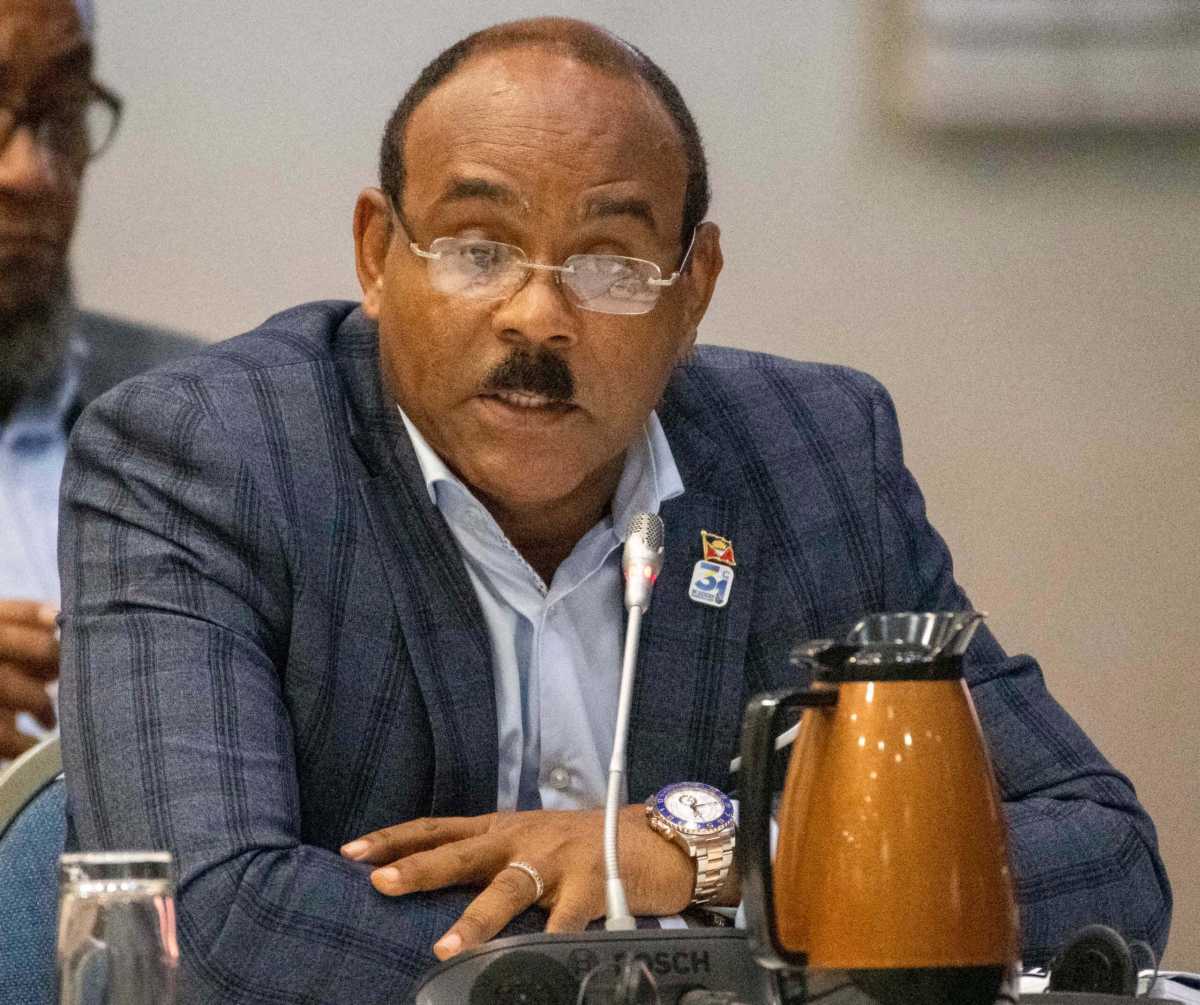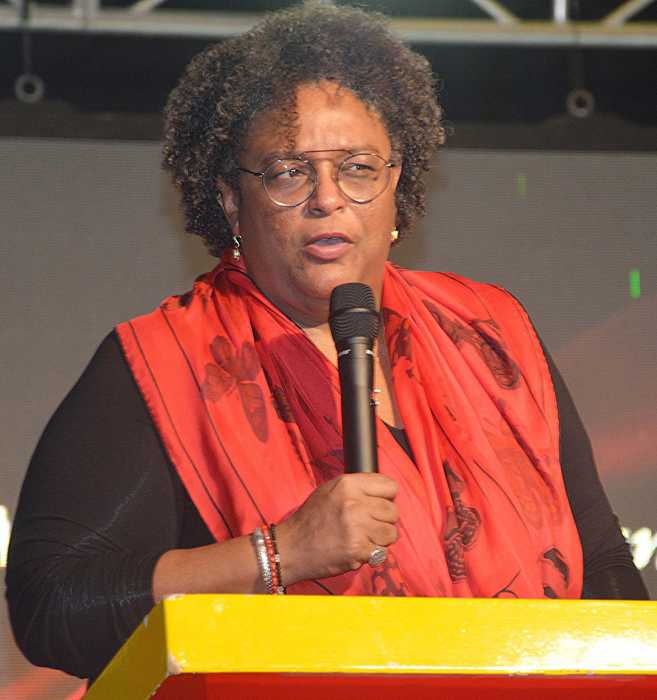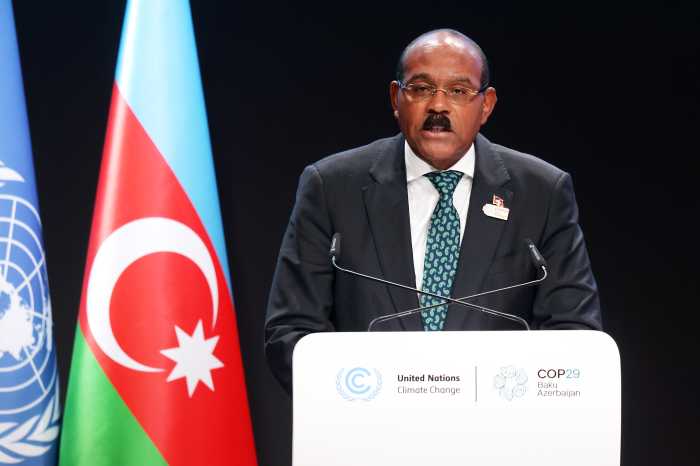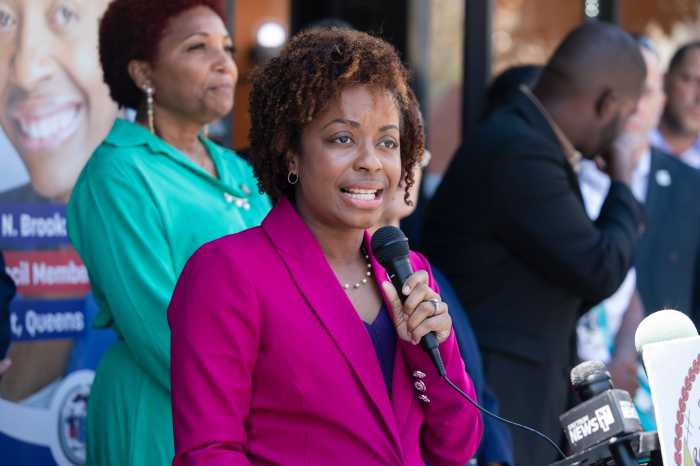Antigua and Barbuda
Antigua and Barbuda’s Prime Minister Gaston Browne has signed a declaration of intent to join CAF – Development Bank of Latin America and the Caribbean.
This is seen as a strategic move toward accessing essential long-term financial resources and technical cooperation grants aimed at advancing sustainable development.
Collaborative efforts with CAF will primarily target critical areas such as climate action, green growth, sustainable tourism, energy transition, and the blue economy.
“We are very happy to celebrate Antigua and Barbuda’s intention to join CAF,” said Browne.
“We are fully aligned and ready to work together on the opportunities that CAF can provide to small Caribbean islands like Antigua and Barbuda to achieve greater well-being for their inhabitants.”
CAF Executive President Sergio Díaz-Granados said, “The growing partnership between Antigua and Barbuda and CAF demonstrates our commitment to providing Caribbean SIDS with new options for development financing to support the Caribbean with tackling development issues that are affecting their communities.”
“Additionally, it underscores the growing confidence that Caribbean countries are placing in CAF to provide swift and innovative financing solutions that will directly benefit their citizens’ well-being.”
Officials of Antigua and CAF signed the Letter of Intent during SIDS 4 (Small Island Developing States) conference, which is organised by the UN every 10 years.
This gathering summoned leaders from 39 independent states and 18 associate members of the United Nations regional commissions, along with other global leaders, to address the challenges confronting small islands, many of which are situated in the Caribbean.
Bahamas
The Central Bank of the Bahamas (CBB) says, the domestic economy is expected to expand at an average pace in 2024 and that the growth is boosted by ongoing gains in the tourism industry and other areas of the real sector.
“In addition, new and on-going foreign investment projects are anticipated to provide support to the construction sector and aid economic growth,” in its Monthly Economic and Financial Developments (MEFD) for the month of April the CBB said.
“However, downside risks to tourism remain, predominantly related to exogenous factors, such as geopolitical tensions and heightened global oil prices, which could disrupt travel sector activity. Moreover, the resumption of counter-inflation policies by major central banks could reduce the travel spending capacity of key source market consumers,” the CBB said.
It said with regards to the labor market, employment conditions are expected to continue to improve, with additional job gains primarily in the construction and tourism sectors.
The central bank said that on the fiscal front, the government’s net financing gap is expected to maintain its downward trend.
It said further, the anticipated recovery in revenue remains significantly linked to tourism-led improving trends in taxable economic activities.
The CBB said that overall economic activity during the month of April, indications are that the domestic economy’s growth trajectory persisted, albeit at a slower pace in comparison to the previous year, as economic indicators continued to converge closer to their expected medium-term potential.
It said tourism output remained buoyant, bolstered by healthy expenditure paced gains in the high value-added air traffic component and further growth in sea passengers, undergirded by the ongoing demand for travel in key source markets.
Guyana
The Suriname Guyana Chamber of Commerce (SGCC) was set to host its first trade delegation from Guyana to Suriname from June 5-9.
This delegation will include more than 50 representatives from 23 companies, aimed at strengthening business ties and collaboration between Suriname and Guyana, SGCC announced in a press release. The delegation features members from 22 Guyanese companies and one Trinidadian company
The event will feature nearly 100 planned meetings between Surinamese and Guyanese companies.
“Highlights include a dedicated networking session, interactions with the Curaçao mission, and a meeting with the VSB and the Suriname In- vestment & Trade Agency.Additionally, the SGCC will participate in the Suriname Energy, Oil, and Gas Summit (SEOGS), showcasing companies from both Suriname and Guyana.”
The sectors represented span construction, tourism, transportation, finance, consultancy, oil and gas, logistics, agriculture, auto parts, and ICT.
The SGCC will also play a key role in a seminar titled “Guyana in Focus,” which will discuss enhancing trade relations between Guyana and Suriname and promote the upcoming International Business Conference in Guyana, scheduled for Oct. 15 to 17.
“The Suriname Guyana Chamber of Commerce is excited to lead this groundbreaking initiative, reinforcing its commitment to fostering business growth and collaboration in the Guyana-Suriname region,” the release stated.
Haiti
The London-based international human rights group, Amnesty International is raising concerns about what it termed as the lack of transparency regarding the establishment of human rights safeguards for the Multinational Security Support (MSS) Mission in Haiti, that is expected to be deployed in the coming months.
“It is imperative to ensure that any action taken by this multinational mission led by Kenya and supported by the United States and other countries strictly complies with international human rights law as mandated by the United Nations Security Council. A misstep in this regard would be devastating for Haitian people’s rights,” said Ana Piquer, Americas Director at Amnesty International.
“Past multinational or foreign security missions in Haiti have been tarnished by widespread human rights violations and rampant impunity. That is why all the necessary measures must be taken both prior to and for the entire duration of any deployment in Haiti to prevent history from repeating itself.”
Last October, the United Nations Security Council passed a resolution allowing for the MSS to be led by Kenya to help restore security to the French-speaking CARICOM country that has been overrun by criminal gangs, especially following the assassination of president Jovenel Moise in July 2021.
The Bahamas, Bangladesh, Barbados, Belize, Benin, Chad, Jamaica and Kenya have officially notified the United Nations of their intent to contribute personnel to the support mission.
Jamaica
Jamaica’s Minister of Tourism, Edmund Bartlett has eliminated the idea or belief by some that all tourism jobs are low-paying.
Bartlett made this point during a panel discussion titled Integrated Tourism Development of Caribbean Hotel and Tourist Association’s Travel Marketplace, which was held last month at Montego Bay Convention Centre, Jamaica.
He indicated that his ministry has put training programs in place that will provide workers with the qualifications needed to command higher salaries.
“The purpose of enabling us to change the labor market arrangements in tourism is that it is regarded as a low-wage industry with itinerants. The workers have not had a sense of commitment to a professional path because they don’t see it as existing in tourism. But that’s the tourism of the past—and we in the Caribbean know this,” Bartlett outlined.
“We are no longer a tourism of seasonality—six months off and six months on. We are now 24/7 so we have to create and train people to serve, and to do well, and to add value every step of the way 24/7,” he added.
The minister added that while capitalism was the driving force behind economic prosperity, workers were key assets to growing the industry.
Also giving his input on the panel was Sandals and Beaches Resorts executive chairman, Adam Stewart, who said the tourism industry in the region is sophisticated and complicated. Stewart mentioned that “it is something that you cannot take a lot of chances with and it’s something that needs deep experience around it.”
Further, he stated that there was a need for cohesion and continued dialogue between regional public and private sector players to effectively address key issues.
He said both sectors must be able to hold hands, put in the infrastructure that will develop tourism, and create wealth for economies and the people.
Minister of Tourism and Ports for the Cayman Islands and chairman of the Caribbean Tourism Organisation (CTO), Kenneth Bryan, the third panelist spoke about the importance of technology such as artificial intelligence to integrated tourism development, stating that it was inevitable.
“It’s time for us to embrace it and try to figure out how to take advantage of it.”
He added that technology would allow for more efficiency in the future and the transfer of labor into other areas.
St. Lucia
The St. Lucia government yesterday said it has made suggestions to governments in the sub-regional Organisation with Eastern Caribbean States (OECS) with Citizenship by Investment programs (CBI) to further strengthen a regional agreement they have signed recently.
Prime Minister Phillip J Pierre in a statement said that Castries has proposed legislative changes to address change of name requests and that this has been agreed to by the leaders of the other countries.
Apart from St Lucia, the other OECS countries with a CBI program are Antigua and Barbuda, Dominica, Grenada, and St. Kitts-Nevis.
Under the CBI program, foreign investors are granted citizenship of the country in return for making a substantial investment in the socio-economic development of those countries.
Pierre said that after careful review and extensive discussions with stakeholders and other OECS leaders with CBI programs, St. Lucia agreed to sign the Memorandum of Agreement (MOA) already signed by other OECS CBI countries.
He said the MOA calls for pricing, information sharing and transparency standards, regulation, security screening and framework as well as the regulation, dispute resolution, amendment and termination.
Pierre said over the last year, the Citizenship by Investment Unit here has instituted all six principles agreed to with the United States government.
— Compiled by Devika Ragoonanan


























